If you're new to art, you might be wondering: Why are there so many kinds of paintbrushes? How do I know when to switch to a different brush? In this blog post designed for beginners and art-lovers alike, you'll learn what each paintbrush shape is best used for, the difference in textures between each brush, and how to best take care of your little art-making friends.
Grab a new brush!
The most popular types of paintbrushes are Round, Liner, Wash, Angular Wash, and Fan. Each type of brush has different sizes to help you cover larger areas or get those fine details depending on the size and subject of your painting. The higher the number, the bigger the brush or the more bristles there are. Let's dive in to what each type of brush is best used for!
- Round Brushes are the most adaptable kind of brush because you can do so many things with them! This type of brush is great for washes, covering large areas quickly, and lines of all sizes.
- Liner Brushes are your best friend when it comes to fine details and small areas! These have smaller and longer bristles for small, crisp lines.
- Fan Brushes are great for unique textures and special effects, making it easy to create multiple lines or dots at once.
- Angled Brushes are best used for making clean lines. If you have an edge that’s close to another object or if you want a crisp, straight line, you'll want this kind of brush!
- Use a Flat or Wash Brush for color that’s smooth like butter, bold, and crisp! These are also great for creating long lines and spreading color quickly.
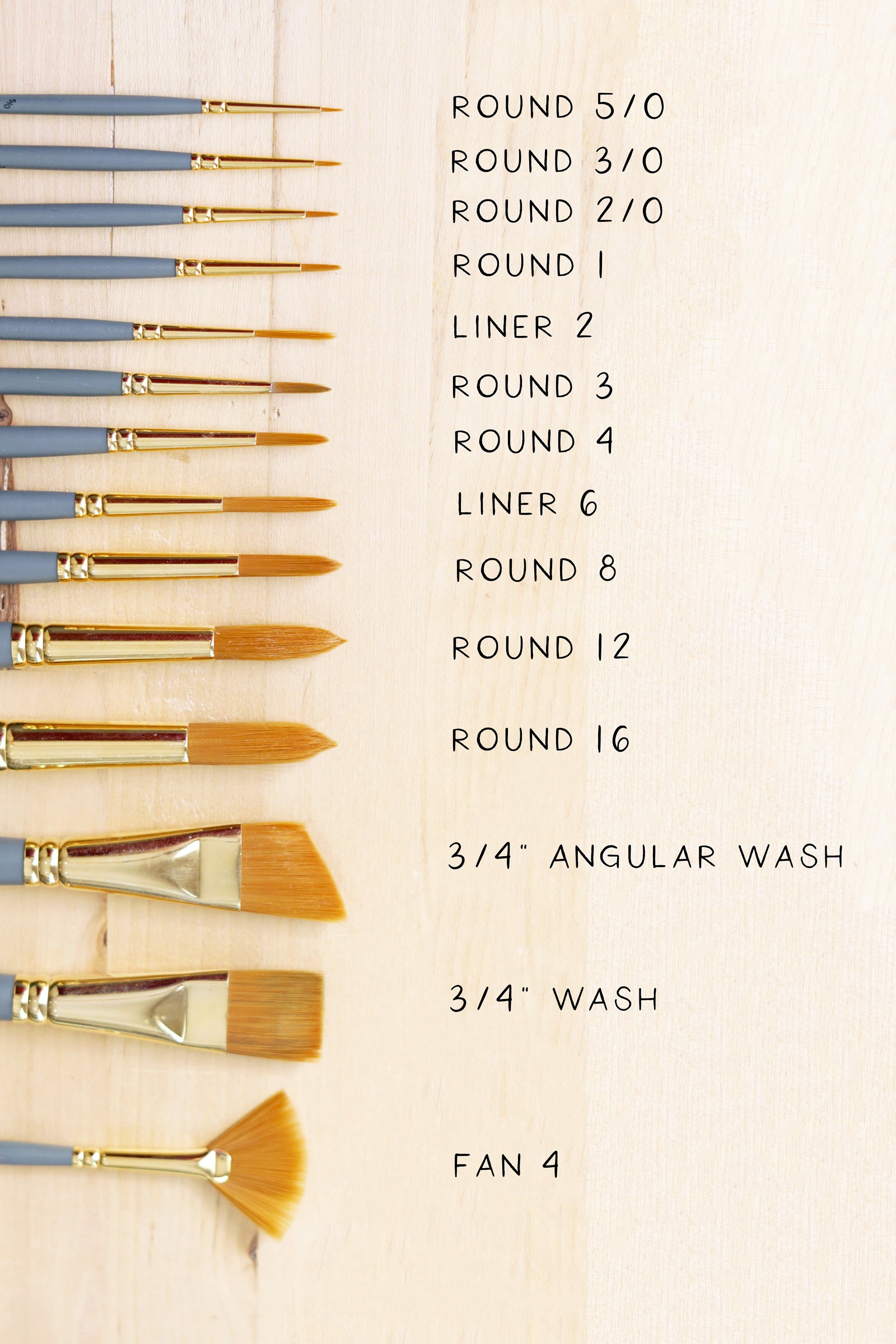
Read on to learn about the uses of each type of brush!
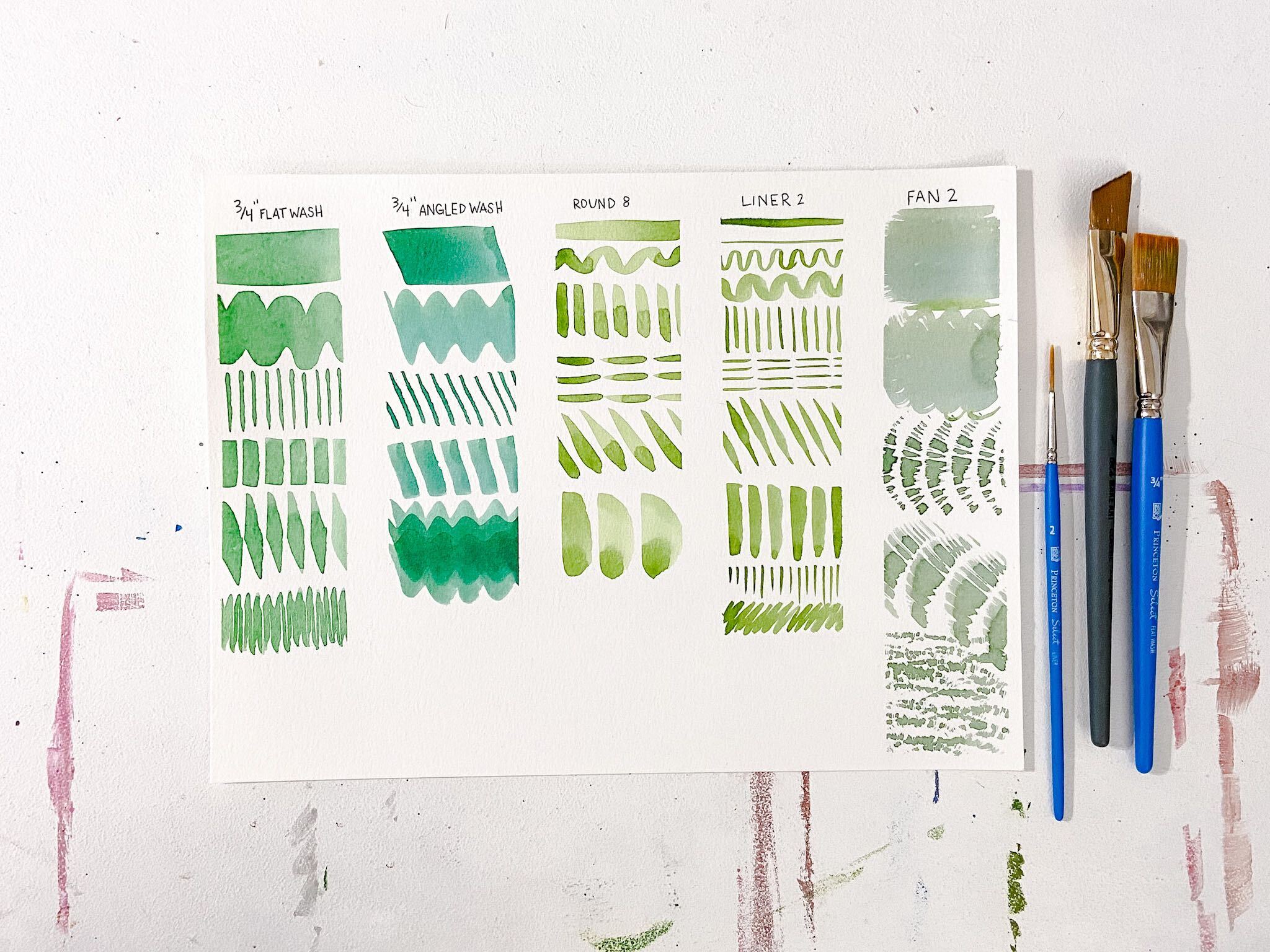
Want to see some of these brushes in action? Check out watercolor artist Sarah Cray's Panda and Tropical Sunset tutorials!
To get the best results in your artwork, you should replace your paintbrushes about every 6 months. However, if you're not quite sure if the time is right, there is an easier way to tell when your paintbrush needs a new hairdo!
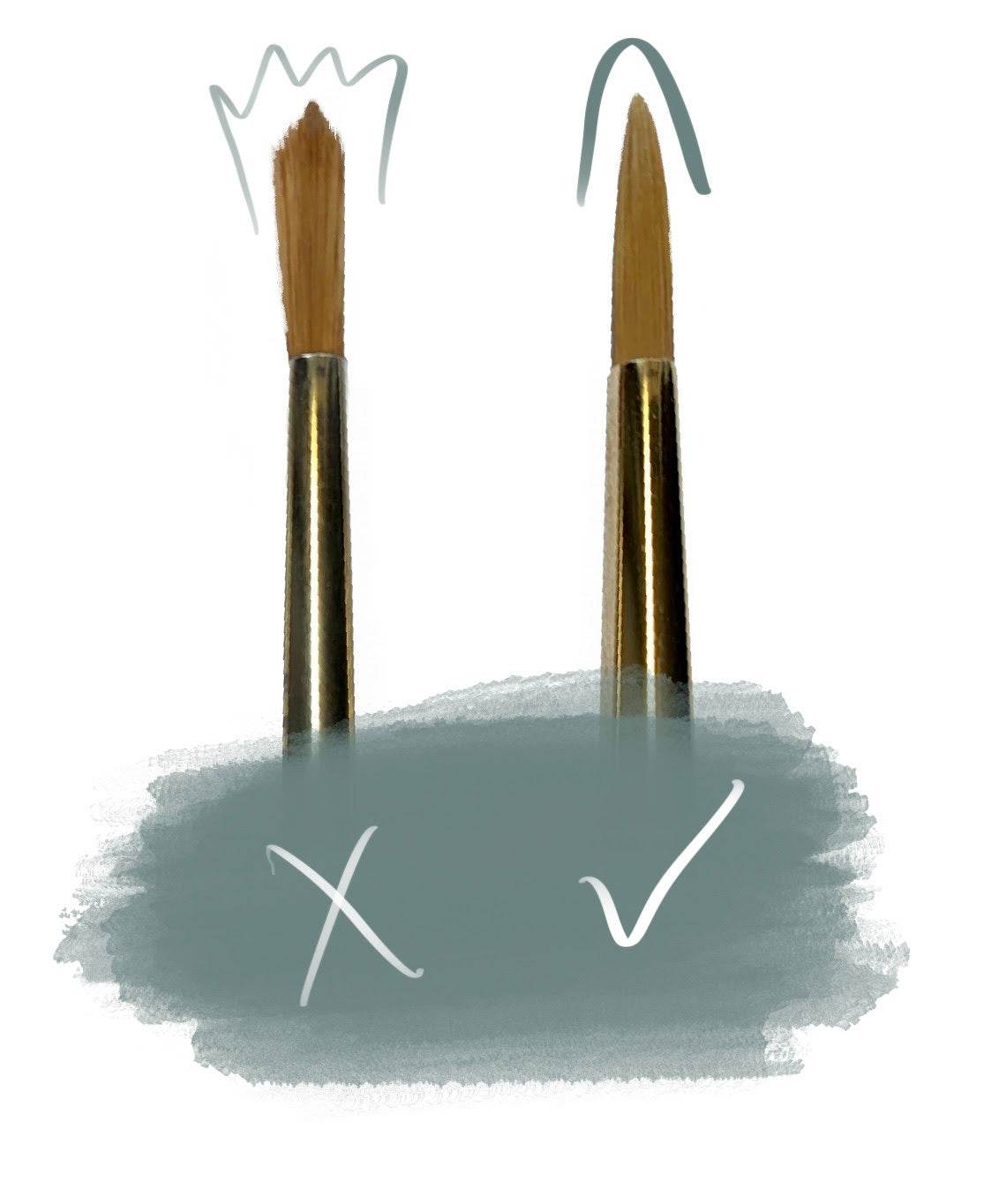
If the bristles on your paintbrush look frayed, jagged, or if the bristles are starting to fall out, it's safe to say your little friend is ready for an upgrade. The bristles of your brush should come to a nice point, making it easy for you to create precise lines in your artwork.
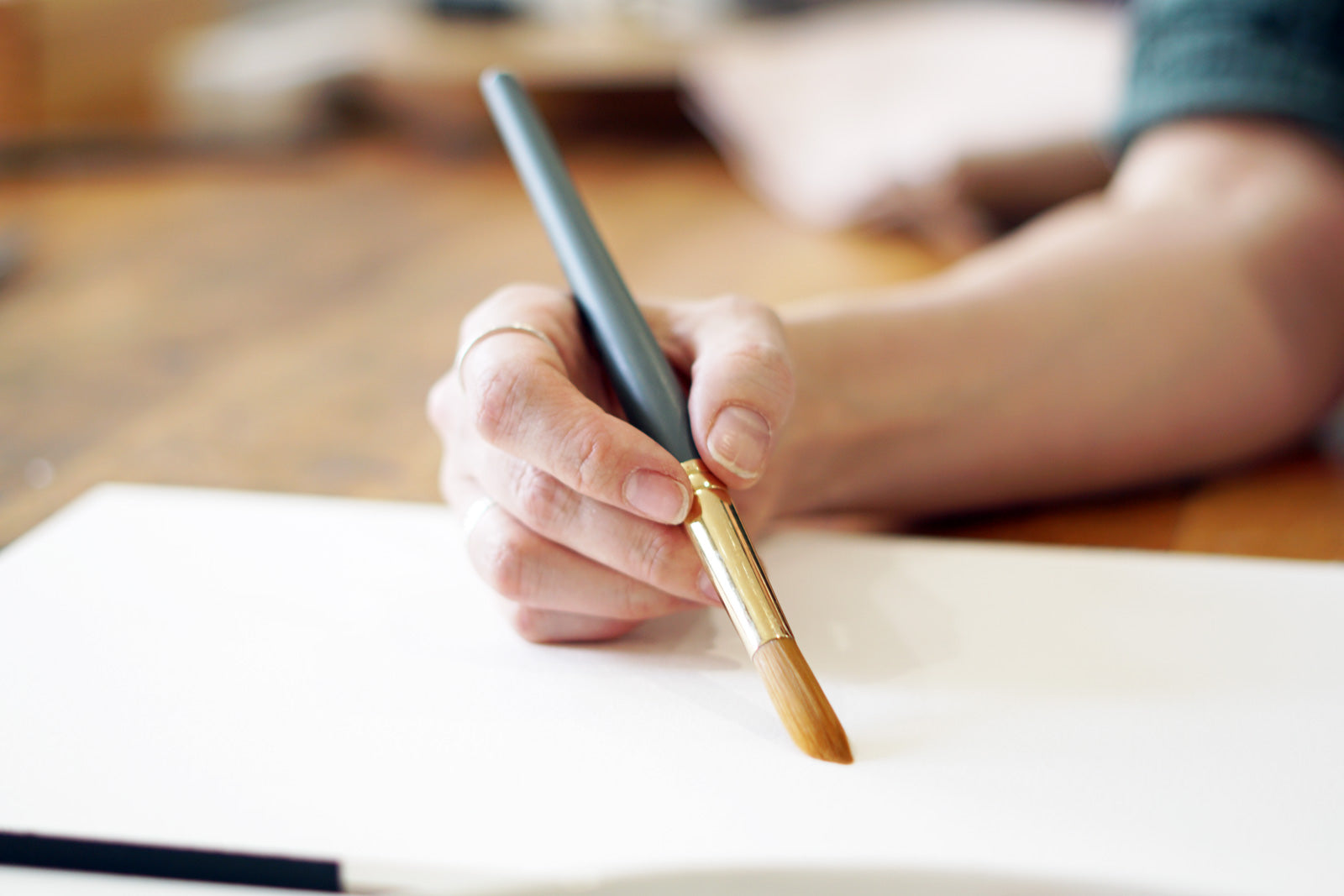
To preserve the life of your paintbrushes, it's important to take care of them the right way.
- Never leave your brush sitting in a cup of water. This will damage the bristles! Instead, if you need to lay your brush down, it's best to let it rest flat on a dry area (like a paper towel).
- If you're painting with watercolor, you can wash your brush using just water. If you're painting with other mediums such as acrylic, it's best to wash your brush immediately after you're done with gentle soap and water. Once clean, reshape the bristles and lay flat to dry.
- Try not to mix the type of paintbrush you are using with a different medium. For example, paintbrushes with stiff bristles are best for mediums like acrylic. Paintbrushes with soft bristles are best for watercolor. If you do mix the type of paintbrush with the medium you are using, just be sure to thoroughly clean it when finished!
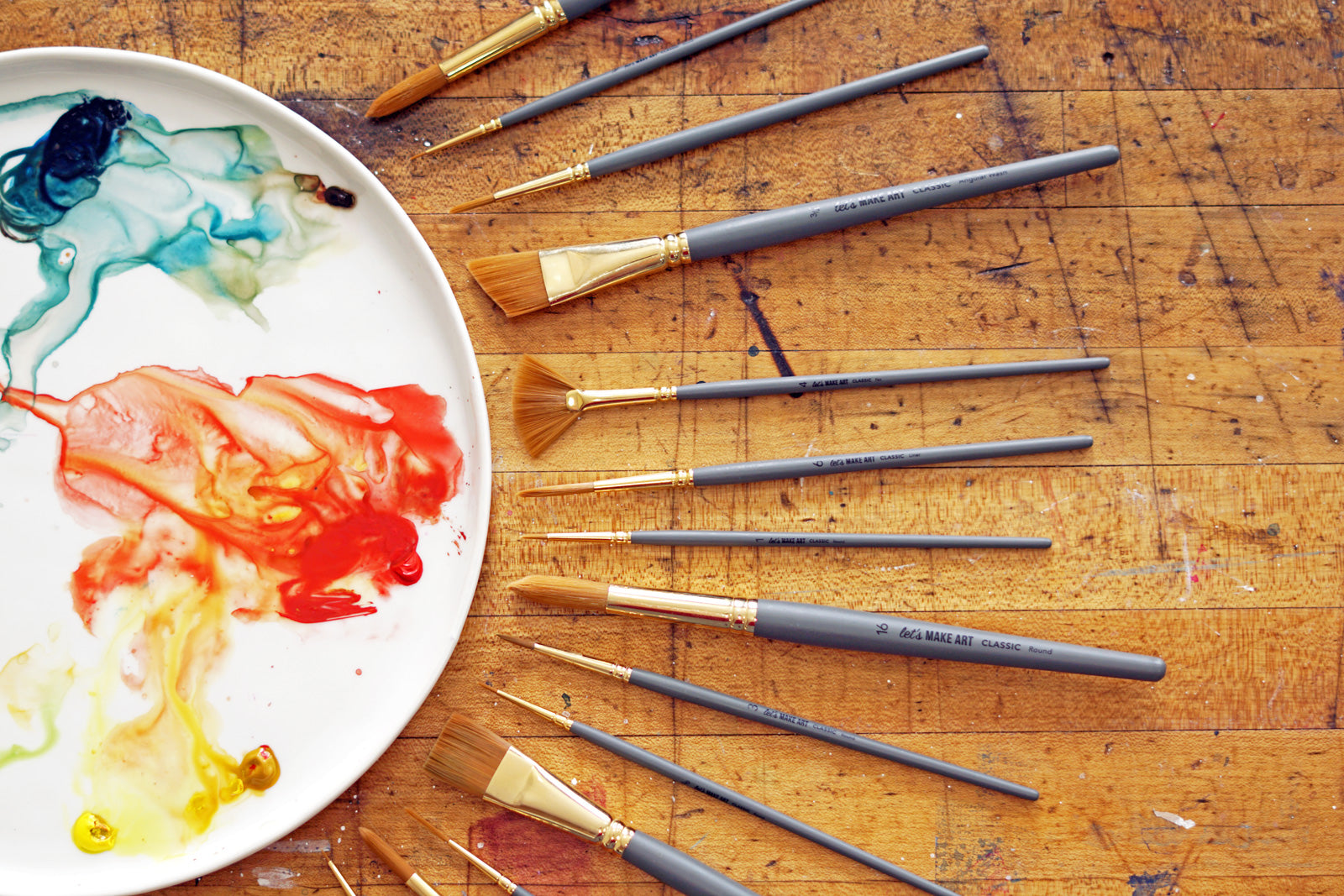
Ready to start painting? Check out our original Let's Make Art paintbrush collection here! If you don't know where to start, we also have a Beginner Series for Watercolor, Art Journaling, and Lettering.



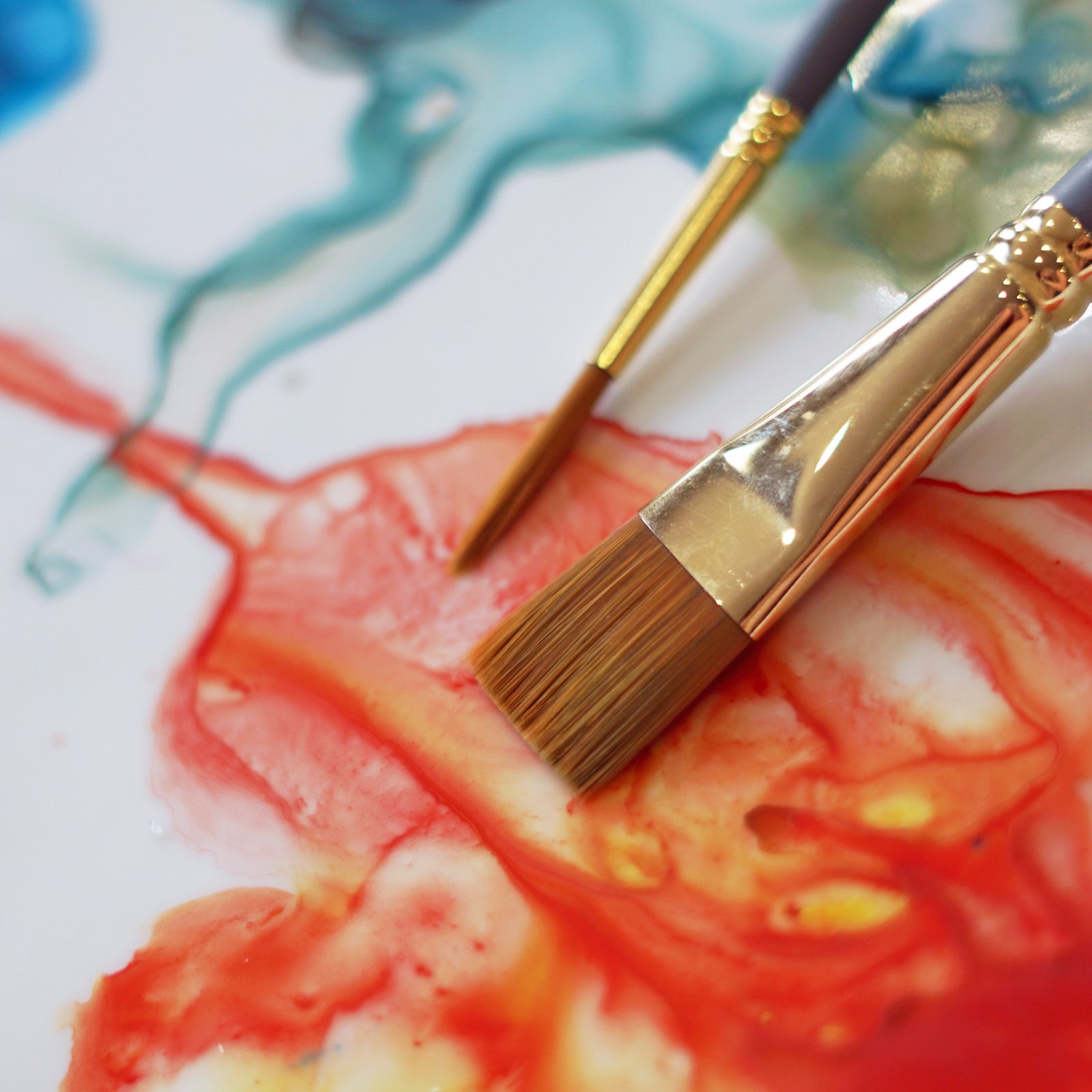

Great post! Your comprehensive guide on paint brush care is a stroke of brilliance for artists at every level. From cleaning techniques to understanding brush types, you’ve created an invaluable resource. This reference guide is like a caring mentor for preserving the life and quality of our artistic tools. Thanks for sharing these essential insights! Have you seen these models https://www.montmarte.com.au/collections/paint-brush-sets ?
This was very informative for me. I do like to dab into water colours and the odd time I do acrylic. My wide variety of brushes are wonderful. I have purchased some brushes that came with other brushes that I had no clue how to use them and what their purposes were. I just learned a ton of information that was very useful . Thank you very much.
This was very informative for me. I do like to dab into water colours and the odd time I do acrylic. My wide variety of brushes are wonderful. I have purchased some brushes that came with other brushes that I had no clue how to use them and what their purposes were. I just learned a ton of information that was very useful . Thank you very much.
Hi! I’m doing an art quiz and I had to know the different brushes and their names so your site was really helpful ❤️❤️
This brush info is really helpful.